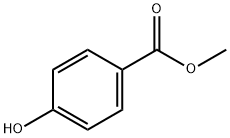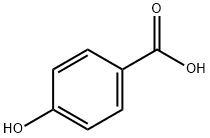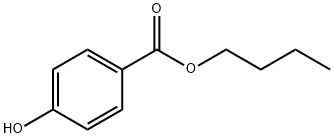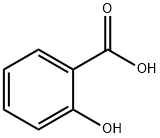4-Bromo-2-hydroxybenzoic acid
Synonym(s):4-Bromosalicylic acid
- CAS NO.:1666-28-0
- Empirical Formula: C7H5BrO3
- Molecular Weight: 217.02
- MDL number: MFCD06797970
- EINECS: 624-267-3
- SAFETY DATA SHEET (SDS)
- Update Date: 2025-09-25 17:15:13

What is 4-Bromo-2-hydroxybenzoic acid?
Chemical properties
4-Bromo-2-hydroxybenzoic acid is a solid at normal temperature and pressure. It is stable at normal temperature and decomposes into phenol and carbon dioxide after rapid heating. It has some acidic properties.
The Uses of 4-Bromo-2-hydroxybenzoic acid
2-Hydroxy-4-bromobenzoic acid is used as an anti-scorch agent in drug molecules and rubber industry, as well as an intermediate in the production of ultraviolet absorbers and foaming agents.
Synthesis
Under nitrogen atmosphere, add copper (II) bromide (8.8 g, 39.4 mmol, 1.2 equivalents), acetonitrile (50 ml), and 4-aminosalicylic acid (5.1 g, 49.5 mmol) to the vacuum-dried reaction flask, 1.5 equivalent). The reaction mixture was cooled to 0°C, and 2-hydroxy-4-bromobenzoic acid precursor (5.0 g, 32.6 mmol, 1.0 equiv) was added portion-wise. Additional acetonitrile (25 mL) was added to the mixture and stirred at 0 °C for 2 h. The organic extracts were combined and washed with 20% aqueous hydrochloric acid, dried over magnesium sulfate, filtered, and concentrated under reduced pressure. The residue was dissolved in diethyl ether, and the resulting solution was extracted with 15% sodium hydroxide aqueous solution. The aqueous solution was washed with diethyl ether, acidified to pH 1 with 6N hydrochloric acid aqueous solution, and the mixture was extracted with diethyl ether. The combined organic extracts were washed with brine, dried over magnesium sulfate, filtered, and concentrated under reduced pressure. The residue was treated with chloroform, and the precipitate collected by filtration was 4-Bromo-2-hydroxybenzoic acid.
Properties of 4-Bromo-2-hydroxybenzoic acid
| Melting point: | 164-165°C |
| Boiling point: | 330.2±32.0 °C(Predicted) |
| Density | 1.861±0.06 g/cm3(Predicted) |
| storage temp. | Keep in dark place,Inert atmosphere,Room temperature |
| pka | 2.71±0.10(Predicted) |
| color | Orange |
| InChI | InChI=1S/C7H5BrO3/c8-4-1-2-5(7(10)11)6(9)3-4/h1-3,9H,(H,10,11) |
| CAS DataBase Reference | 1666-28-0(CAS DataBase Reference) |
Safety information for 4-Bromo-2-hydroxybenzoic acid
| Signal word | Danger |
| Pictogram(s) |
 Skull and Crossbones Acute Toxicity GHS06 |
| GHS Hazard Statements |
H301:Acute toxicity,oral |
| Precautionary Statement Codes |
P301+P310:IF SWALLOWED: Immediately call a POISON CENTER or doctor/physician. |
Computed Descriptors for 4-Bromo-2-hydroxybenzoic acid
| InChIKey | FYAKLZKQJDBBKW-UHFFFAOYSA-N |
| SMILES | C(O)(=O)C1=CC=C(Br)C=C1O |
New Products
4,4-Difluoropiperidine hydrochloride tert-butyl 9-methoxy-3-azaspiro[5.5]undecane-3-carboxylate Indole Methyl Resin N-Isopropylurea N,N-Dicyclohexylcarbodiimide(DCC) MELDRUMS ACID 5-METHYLISOXAZOLE-4-CARBOXYLIC ACID Magnessium Bis glycinate Zinc ascorbate 1-bromo-2-butyne 2-acetamidophenol 9(10H)-anthracenone Erythrosin B, 4-Piperidinopiperidine 2-((4-morpholinophenylamino) (methylthio) methylene) malononitrile 2,4-dihydroxybenzaldehyde 3-(4-morpholinophenylamino)-5-amino-1H-pyrazole-4-carbonitrile Methyl 2-methylquinoline-6-carboxylate 2,6-dichloro-4-nitropyridine 4-Bromo-2-chlorobenzonitrile 2-(benzylamino)acetic acid hydrochloride 4-(tert-Butoxycarbonylamino)but- 2-ynoic acid 3,4-dihydro-2H-benzo[b][1,4]dioxepine 1-Phenyl-1-cycloprppanecarboxylicacidRelated products of tetrahydrofuran








You may like
-
 4-Bromo-2-Hydroxybenzoic Acid 1666-28-0 98%View Details
4-Bromo-2-Hydroxybenzoic Acid 1666-28-0 98%View Details
1666-28-0 -
 4-Bromo-2-hydroxybenzoic acid CAS 1666-28-0View Details
4-Bromo-2-hydroxybenzoic acid CAS 1666-28-0View Details
1666-28-0 -
 3-(4-amino-1-oxoisoindolin-2-yl)-1-methylpiperidine-2,6-dione 98%View Details
3-(4-amino-1-oxoisoindolin-2-yl)-1-methylpiperidine-2,6-dione 98%View Details -
 614-19-7 98%View Details
614-19-7 98%View Details
614-19-7 -
 20677-73-0 (2,2-diethoxyethyl)methylamine 98%View Details
20677-73-0 (2,2-diethoxyethyl)methylamine 98%View Details
20677-73-0 -
 3-(4-(hydroxyamino)-1-oxoisoindolin-2-yl)piperidine-2,6-dione 98%View Details
3-(4-(hydroxyamino)-1-oxoisoindolin-2-yl)piperidine-2,6-dione 98%View Details -
 57381-49-4 2-bromo-4-chlorobenzonitrile 98%View Details
57381-49-4 2-bromo-4-chlorobenzonitrile 98%View Details
57381-49-4 -
 4,6-dichloropyrimidine-5-carbaldehyde 98%View Details
4,6-dichloropyrimidine-5-carbaldehyde 98%View Details
5305-40-8
